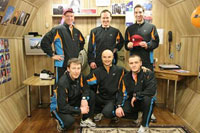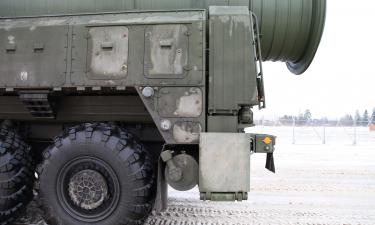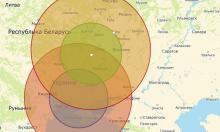Six Men To Be Locked in Mock Spaceship for 18 Months To Be Trained for Martian Mission
On Thursday morning, six astronauts will be locked in a 550 cubic-meter windowless complex in Moscow. The mission: to simulate the experience of a real trip to Mars and back. The "voyage" will take 520 days, roughly 12 months longer than the average six-month stay at the International Space Station.

Scientists will be monitoring the international crew and studying everything from social and psychological impacts of isolation to microbiology and clinical diagnostics. Dubbed Mars500, the mission is a joint venture between the European Space Agency and the Russian Institute for Biomedical Problems in Moscow, NewsHour reports.
During this odyssey of isolation, University of Pennsylvania professor David Dinges will be monitoring their sanity.
Dinges, a psychologist, psychiatrist, and sleep expert, will be testing out some high-tech interventions, including a kind of emotion-cam, designed to read the faces of the volunteers and assess whether they're exhausted, angry, depressed, or otherwise under stress.
If past long-duration missions are any indication, there will be trouble, Dinges said. While NASA doesn't want to publicize the ugly details, he said, there's plenty of evidence from Skylab, the International Space Station, and the Russian space station Mir that astronauts and cosmonauts can quarrel, sulk, rage, and go into space funks of all kinds, Philadelphia Inquirer reports.
Subscribe to Pravda.Ru Telegram channel, Facebook, RSS!




